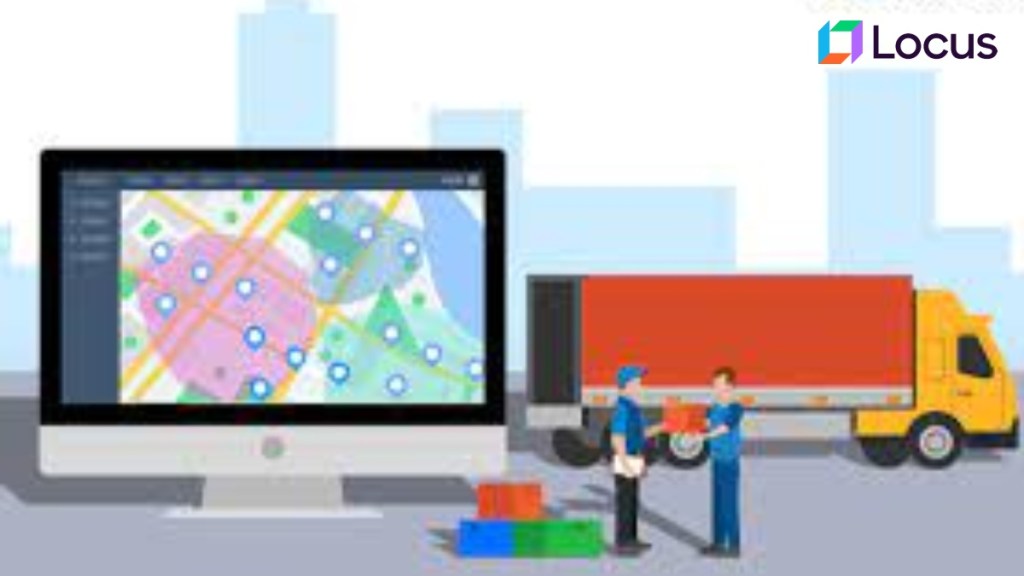By Nishith Rastogi, Founder and CEO, Locus
The e-commerce industry is experiencing constant growth, with a CAGR of 16.9%, and is on its way to reaching an impressive $21,168.6 billion by 2030. This growth is driven by a surge in demand for online shopping that has led to an increased need for efficient logistics operations. In order to meet the rising demand and exceed customer expectations, businesses are prioritizing logistics scheduling.
Logistics scheduling encompasses the meticulous planning and coordination of the movement of goods from the point of origin to the destination while also handling other operations such as inventory management, transportation, and delivery. With the e-commerce industry perpetually growing, logistics scheduling has emerged as a vital component of the supply chain, enabling businesses to optimize their resources, minimize expenditures, and increase profitability.
Let’s examine why logistics scheduling is gaining prominence in the supply chain and retail industries and how it fosters consistent delightful customer experiences.
The Role of Logistics Scheduling in Supply Chain Management
In the contemporary business landscape, brands face immense pressure to deliver products swiftly, as 80% of customers expect same-day shipping. To add to this challenge, 61% of shoppers desire even faster delivery times, ideally within 1-3 hours of placing an order. Nearly all e-commerce platforms provide speedy delivery options to keep up with such high expectations.
Nevertheless, unanticipated delays occasionally occur, but failing to notify consumers can prove to be a costly affair. In fact, research suggests that 69.7% of dissatisfied customers are less likely to shop with a retailer again, creating a detrimental impact on both the retailer and its logistics partner.
This is why logistics scheduling has become a crucial and inevitable element in the logistics and supply chain industry by helping companies:
- Manage Inventory Levels: With carefully scheduled deliveries, businesses can manage their inventory levels effortlessly and reduce the risk of stockouts or overstocking. This, in turn, allows companies to maintain a healthy balance between supply and demand, ensuring that customers receive their products on time and that the business can operate seamlessly.
- Reduce Lead Times: Logistics scheduling enables companies to predict demand and plan delivery routes. As a result, they can reduce lead times and ensure that products are delivered faster, enhancing customer satisfaction and driving sales.
- Lower Transportation Costs: By pre-planning routes and streamlining delivery schedules, logistics scheduling can help businesses curtail transportation and last-mile delivery expenses, accounting for up to 53% of total delivery expenses.
Incorporating Technology that can help streamline the logistics and supply chain sector
Considering the significance and advantages of logistics scheduling and its projected growth rate of 6.3% CAGR, the global logistics market expects to reach USD 14.37 trillion by 2028. As a result, numerous applications and integrations are available to facilitate the logistics scheduling process, from dispatch to delivery. One popular application is third-party fleet management systems that provide real-time data on vehicle locations, fuel consumption, and driver behavior, assisting logistics managers to maximize operational efficiency, minimize costs, and enhance overall productivity. Additionally, these systems also offer tools for tracking shipments and managing inventory, making them an essential component of modern logistics operations.
Incorporating features like Delivery-Linked Checkout (DLC) is another way businesses can enhance the end-customer experience. With DLC, buyers can track their orders in real-time and receive updates on the status of their deliveries. This feature gives customers greater control over their deliveries and minimizes the risk of missed deliveries.
Furthermore, DLC aids businesses in mitigating errors, improving order fulfillment, and enhancing customer satisfaction. By offering customers accurate and real-time delivery information, companies can alleviate the risk of missed deliveries, order cancellations, and returns and witness increased customer loyalty and repeat business.
Scheduling Requirements for B2B and B2C Businesses
The scheduling requirements for B2B and B2C businesses differ due to their unique customer needs and delivery expectations. B2B businesses often require more detailed scheduling to handle larger order volumes and longer lead times, while B2C businesses prioritize fast and dependable delivery for customer satisfaction.
In B2B businesses, logistics scheduling involves multiple supply chain partners in production and distribution. The schedule comprises the planning of production, transportation, and shipment to ensure the timely delivery of products to their destination. Moreover, logistics scheduling aims to minimize freight expenses by identifying the most efficient shipping routes and modes of transport and reducing inventory holding costs by optimizing inventory levels to avoid excess stock.
B2C logistics scheduling prioritizes prompt and reliable delivery to meet customer expectations. For instance, about 73.6% of shoppers consider delivery a pivotal factor in their shopping experience. Therefore, B2C businesses must provide customers with flexible delivery options, such as same-day or next-day delivery, and offer real-time updates on the delivery status of their orders. This approach ensures that customers receive their orders promptly and conveniently.
Disclaimer: Views expressed are personal and do not reflect the official position or policy of Financial Express Online. Reproducing this content without permission is prohibited.


















